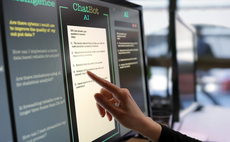Twitter took mobile phone numbers provided by users for two-factor authentication and used them for targeted advertising
Twitter has admitted using phone numbers provided for two-factor authentication (2FA), as well as user email addresses, for advertising purposes. Although the 2FA phone number is supposed to be...
To continue reading this article...
Join Computing
- Unlimited access to real-time news, analysis and opinion from the technology industry
- Receive important and breaking news in our daily newsletter
- Be the first to hear about our events and awards programmes
- Join live member only interviews with IT leaders at the ‘IT Lounge’; your chance to ask your burning tech questions and have them answered
- Access to the Computing Delta hub providing market intelligence and research
- Receive our members-only newsletter with exclusive opinion pieces from senior IT Leaders





















